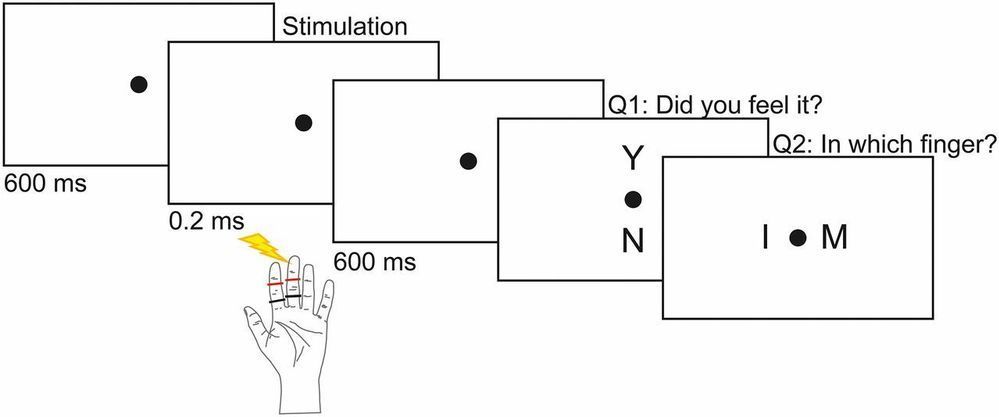Our brain continuously receives signals from the body and the environment. Although we are mostly unaware of internal bodily processes, such as our heartbeats, they can affect our perception. Here, we show two distinct ways in which the heartbeat modulates conscious perception. First, increased heartbeat-evoked neural activity before stimulation is followed by decreased somatosensory detection. This effect can be explained by subjects adopting a more conservative decision criterion, which is accompanied by changes in early and late somatosensory-evoked responses. Second, stimulus timing during the cardiac cycle affects sensitivity but not criterion for somatosensory stimuli, which is reflected only in late somatosensory-evoked responses. We propose that these heartbeat-related modulations are connected to fluctuations of interoceptive attention and (unconscious) predictive coding mechanisms.
Even though humans are mostly not aware of their heartbeats, several heartbeat-related effects have been reported to influence conscious perception. It is not clear whether these effects are distinct or related phenomena, or whether they are early sensory effects or late decisional processes. Combining electroencephalography and electrocardiography, along with signal detection theory analyses, we identify two distinct heartbeat-related influences on conscious perception differentially related to early vs. late somatosensory processing. First, an effect on early sensory processing was found for the heartbeat-evoked potential (HEP), a marker of cardiac interoception. The amplitude of the prestimulus HEP negatively correlated with localization and detection of somatosensory stimuli, reflecting a more conservative detection bias (criterion).
